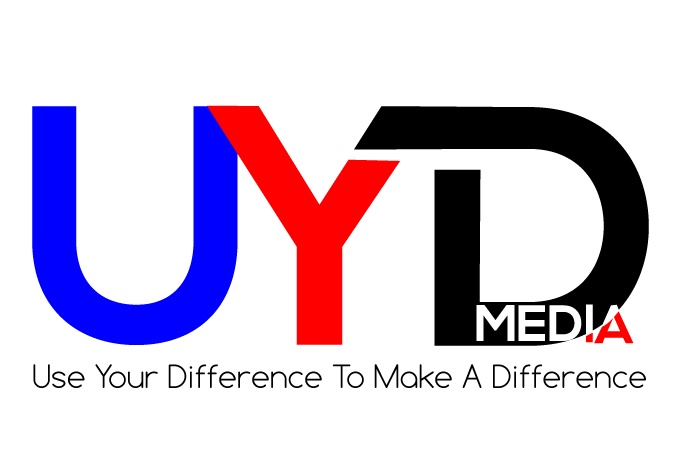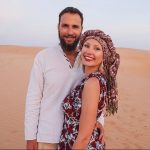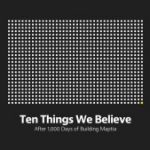Jesus was from Palestine and he lived his life there. Christianity was born in Palestine and still thrives there to this day. This is probably not the image you think of when you think of Palestine. However, Palestinians are very proud of their Christian heritage and we all embrace it. Today Christians make up about 25% of all Palestinians. That estimate is disputed and wavers depending on the source but that is a solid estimate. Worldwide Christians make up about 10% of the Palestinians in the Diaspora. The largest population of Palestinian Christians outside of Palestine exists in Chile. Every sect of Christianity is found in Palestine, the diversity is mind blowing. Walking the streets of Palestine you cannot tell the difference between the Muslim and the Christian. Both say Assalaamu Alaykom (Peace and Blessings of God be upon you, a common Middle Eastern Greeting).
The stereotype is often perpetuated that Muslims and Christians cannot and do not get along, but in Palestine that cannot be further from the truth. There is no fighting between us and them, there is unity. I remember many years ago that a mosque had been destroyed during fighting with the Israeli military and the local Muslims, feeling defeated, decided not to rebuild it. Rebuilding things in Palestine is a very difficult task. The local Christians got together and rebuilt that mosque for them and opened up their church for services to the Muslims in the mean time. That kind of cooperation is to be envied and rarely seen in any part of the world. It is fairly commonplace in Palestine. The Ibrahimi Mosque in Hebron is both a church and a mosque and this is not uncommon. It is believed to be the burial site of Abraham and his family. The facility is used by both religions peacefully and even on the same days and times.
The Church of the Holy Sepulchre in Jerusalem is the most holy place in the world to Christians. It was the site of a much publicized siege in 2002. Activists with the International Solidarity Movement (a staunchly non violent organization) and Palestinians ran into the church to seek refuge and found it. The church offered the dozens of people from many faiths and countries safety. It is believed to be the place where Jesus was crucified and buried and subsequently rose from the dead. The keys to this most holy place are in the hands of Muslims. The keys are held by a representative from two old Jerusalem families: The Judeh family and the Nusaybah family. This dates back to the time when the caliph Omar entered Jerusalem and when Sallahudin pushed out the crusaders. This church is the site of much contention in Christianity but is protected by Muslims, at the request of the Christian priests. The Christians used to fight amongst themselves over which sect controlled the church and even today it is not uncommon to witness priests fighting in the church because of some transgression. The Christians entrusted the upkeep and control of the church to the Muslim families to avoid further bloodshed and discord. The opening and closing of the church is a ritual that everyone nearby stops to observe out of awe and respect.

Christians face the same hardships as Muslims in Palestine. This is often never shown in the media as the focus is always on the Muslim aspect of the conflict. This is a rather skewed way of seeing things and it leads to misunderstandings and stereotypes. Having grown up with one Christian parent (American) and one Muslim parent (Palestinian) this has always been a fascinating topic for me. As a kid I loved going to visit my grandparents in Jerusalem during Christmas break. My friends in the U.S.A were looking at their boring Christmas trees in their home and I was watching the tree lighting ceremony in Manger Square in Bethlehem. Our Muslim neighbor in Jerusalem used to dress up as Santa Claus on Christmas Eve and hand out candy and trinkets to the kids in the neighborhood. I am a Muslim so I do not celebrate Christmas but I adore the tradition. I have very fond childhood memories of both Christmas and Easter. As a child I participated in both since my mother is Christian. You have not experienced either holiday until you experience them right where they began: in Palestine.
Tourists come in throngs during the holidays, namely Christmas and Easter.
Christmas is a big deal in Palestine. Everyone celebrates, everyone joins the parades, and everyone shows up for the lighting of the tree in Manger Square in Bethlehem. The parade in Bethlehem on Christmas Eve is probably the biggest and most festive. There are even bagpipes playing Christmas songs in the parade! I assume this is some leftover part of the British occupation. The bagpipes are a definitive part of the parade and of the Christmas celebration. There are nativities, Santa’s and Christmas trees everywhere. Manger Square is packed with people all day and night of Christmas Eve and Christmas day. People gather there and sing Christmas carols in Arabic, English and several other languages and often at the same time. You will be singing Silent Night in English, the person next to you is singing it in Italian, Arabic or even Latin! The Church of the Nativity holds Christmas mass three times on Christmas Eve. The church fills with the faithful who fill the pews, sit on the ancient floors and stand in entryways. Christmas is also celebrated three times in Palestine during December and January. What can be more fun than that? Western Christians, Armenians and Greek Orthodox all get a day to celebrate Christmas. You ask a Palestinian when Christmas is and they will give you 3 dates: December 25th, January 6th and January 7th. Each one of these celebrations is special and each is a full celebration.
Easter is a long celebration and very elaborate. There are parades for almost every sect of Christianity. Pilgrims come from all over and join in the procession down the path that Jesus took on his way to crucifixion. Along that route there are vendors selling everything from trinkets to the best desserts the world has to offer. Easter is both a solemn time and a glorious celebration. One particular tradition that I love is an Orthodox tradition. Every year on the Saturday before Orthodox Easter at the Church of the Holy Sepulchre in Jerusalem it is said that a miracle happens where a fire lights itself.
This holy fire is then brought to several towns in Palestine and then to various countries that observe Orthodox traditions. This has been widely denounced and proven as a hoax, but the tradition remains and it is something everyone crowds into the church to see. Everyone carries candles to the church to have them lit with this “holy fire”. It is much like the Olympic torch except much more sacred to those receiving it.
Every sect has their own way of celebrating and it is awesome to see. These many sects come from various parts of the world so you get to celebrate Christmas and Easter in Palestine, Greece, Italy, Germany, Armenia, Russia, America, Spain and so many other places all at once. The beauty of it all is that everyone is joined together. Muslims join with them as well. We may not celebrate those holidays but we certainly believe in Jesus and everything he did and stood for. He is sacred to us as well. The only difference being that we do not ascribe God status; also many sects of Christianity do not grant divinity to Jesus. All those cultures, languages and religious interpretations all joined together to celebrate something is awesome to see. The brutal irony of it all is that it happens in one of the most conflict ridden places in the world. If only the words of Henry Wadsworth Longfellow’s poem turned Christmas carol “The Christmas Bells” would ring true and we could see “peace on earth and goodwill towards men”.
How Aminah Alzahir uses her DIFFERENCE to make a DIFFERENCE

There are so many stereotypes regarding Muslims, particularly Muslim women and particularly Palestinians. I think the best way I use my difference to make a difference is that I just live my life. I put myself out there. I volunteer a lot for animal shelters, food banks, homeless shelters, farmers markets and community gardens, and various events. I treat the people I encounter with respect and decency and compassion. I laugh out loud, smile big and go out of my way to be helpful to anyone who needs it. I allow people to ask questions and I am prepared to answer them. I think what often happens when you have a part of society that feels inferior or like ‘the other’ is that they insulate themselves. They stick to each other, they don’t venture out too much. This makes them miserable and makes for a very uninteresting life but it also helps to perpetuate the negative stereotypes because people have no firsthand knowledge of you; because you do not interact. I show up to events, whether as a supporter or volunteer wearing my hijab and a smile, ready to mingle. I also do more tangible things like working with animal rescue organizations. As someone who grew up for a time in foster care and an orphanage I have a deep empathy for animals in a shelter environment. I bring home foster cats. I usually take the adult cats that have social issues and bring them home and give them time to heal and adjust to being loved in a home environment. I am also a fierce activist for many causes mainly women’s rights, Palestinian issues, civil rights in the USA and human rights worldwide and of course animal rights and environmental causes. I am not as active as I was 10 or 15 years ago but I am still out there trying my best to change the world.




